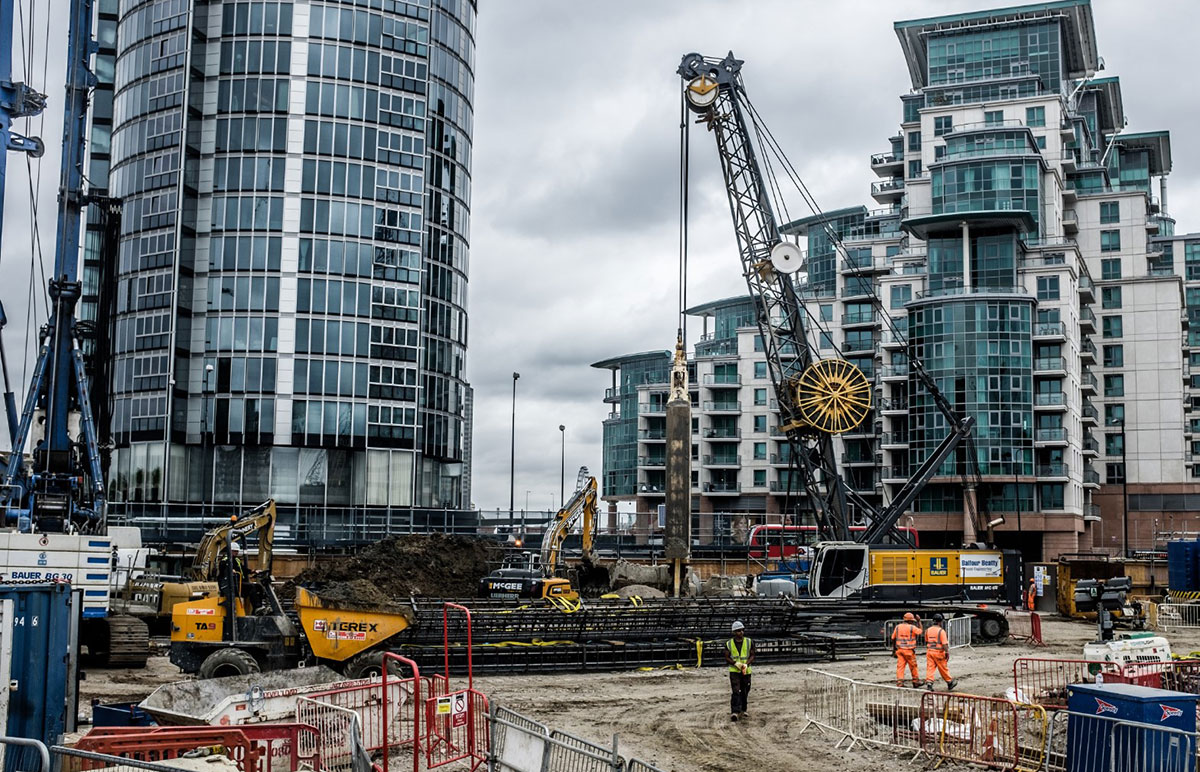What Does Geotheta Do?
What Does Geotheta Do?
Blog Article
Geotheta Fundamentals Explained
Table of ContentsThe Main Principles Of Geotheta Some Known Factual Statements About Geotheta Geotheta - QuestionsWhat Does Geotheta Do?A Biased View of Geotheta

They carry out website investigations, collect samples, carry out lab tests, and assess data to assess the viability of the ground for building and construction tasks - Tailings Engineer. Based on their findings, geotechnical engineers give referrals for structure layout, incline stability, retaining frameworks, and reduction of geotechnical hazards. They team up with other specialists, such as designers, structural engineers, and building groups, to make sure that geotechnical considerations are incorporated right into the total task style and application
By examining the behavior and residential properties of soil and rock, they can recognize prospective geotechnical dangers such as landslides, dirt negotiation, or incline instability. Their proficiency assists avoid failures or crashes that can endanger lives and home. Right here are some thorough responsibilities and duties of a geotechnical designer: Website Examination: Geotechnical designers conduct website examinations to gather information on subsurface problems.
They analyze the data to recognize the properties and behavior of the dirt and rock, including their strength, leaks in the structure, compaction attributes, and groundwater conditions. Geotechnical Analysis and Design: Geotechnical engineers analyze the data gathered during website examinations to examine the stability and viability of the website for construction jobs. They do geotechnical calculations and modeling to evaluate aspects such as birthing ability, negotiation, incline security, side earth stress, and groundwater flow.
The Geotheta PDFs
Foundation Layout: Geotechnical engineers play an important role in developing foundations that can safely sustain the intended structure. They evaluate the dirt conditions and lots demands to establish the ideal structure type, such as shallow structures (e.g., footings), deep structures (e.g (https://soundcloud.com/geotheta)., piles), or specialized strategies like dirt renovation. They consider aspects such as settlement limitations, bearing capability, and soil-structure communication to establish optimal foundation layouts
They examine building and construction strategies, screen website activities, and carry out area inspections to validate that the style suggestions are complied with. If unforeseen geotechnical problems occur, they examine the scenario and offer referrals for remediation or changes to the style. Threat Assessment and Reduction: Geotechnical designers analyze geotechnical dangers and threats connected with the project site, such as landslides, liquefaction, or soil disintegration.

Collaboration and Communication: Geotechnical engineers function closely with other experts associated with a job, such as designers, architectural designers, and construction groups. Reliable communication and cooperation are necessary to integrate geotechnical factors to consider right into the general task layout and building process. Geotechnical designers offer technical expertise, response inquiries, and make sure that geotechnical requirements are fulfilled.
How Geotheta can Save You Time, Stress, and Money.
Here are some sorts of geotechnical engineers: Structure Designer: Foundation designers specialize in designing and analyzing structures for frameworks. They examine the dirt conditions, tons demands, and site characteristics to determine the most ideal structure kind and style, such as shallow foundations, deep foundations, or specialized methods like heap structures.
They examine the factors affecting incline stability, such as soil residential properties, groundwater conditions, and slope geometry, and establish methods to avoid incline failures and alleviate risks. Earthquake Designer: Earthquake engineers concentrate on evaluating and creating frameworks to hold up against seismic forces. They evaluate the seismic threat of a site, evaluate dirt liquefaction capacity, and develop seismic layout criteria to guarantee the safety and durability of frameworks during earthquakes.
They do field testing, accumulate samples, and examine the collected information to define the soil homes, geologic formations, and groundwater conditions at a website. Geotechnical Instrumentation Engineer: Geotechnical instrumentation designers concentrate on surveillance and determining the habits of soil, rock, and frameworks. They set up and keep instrumentation systems that monitor factors such as dirt negotiation, groundwater levels, incline activities, and structural displacements to analyze performance and give very early warnings of potential concerns.
Unknown Facts About Geotheta
They conduct tests such as triaxial tests, loan consolidation tests, straight shear examinations, and permeability examinations to gather data click this link for geotechnical analysis and design. Geosynthetics Engineer: Geosynthetics designers specialize in the design and application of geosynthetic products, such as geotextiles, geogrids, and geomembranes. They make use of these materials to improve soil security, reinforce inclines, give drainage options, and control disintegration.
They tend to be investigatory individuals, which means they're intellectual, reflective, and inquisitive. They are interested, methodical, logical, logical, and logical. A few of them are likewise social, suggesting they're kind, charitable, participating, individual, caring, useful, understanding, sensible, and pleasant. Does this noise like you? Take our complimentary job examination to learn if geotechnical designer is just one of your top occupation matches.
In the workplace setting, geotechnical designers use specialized software tools to do estimations, develop layouts, and evaluate information. They prepare records, review job specs, communicate with customers and team participants, and coordinate job activities. The office setup offers a helpful atmosphere for research study, analysis, and collaboration with various other professionals included in the task.
All about Geotheta
They regularly check out job websites to carry out site examinations, examine geotechnical conditions, and collect information for analysis. These gos to involve traveling to different areas, often in remote or tough surfaces. Geotechnical designers might carry out dirt tasting, conduct examinations, and monitor building tasks to ensure that the geotechnical facets of the job are being applied properly.
Geotechnical designers also function in specialized geotechnical laboratories. Geotechnical lab engineers work thoroughly in these settings, handling screening equipment, operating tools, and tape-recording information.
Report this page